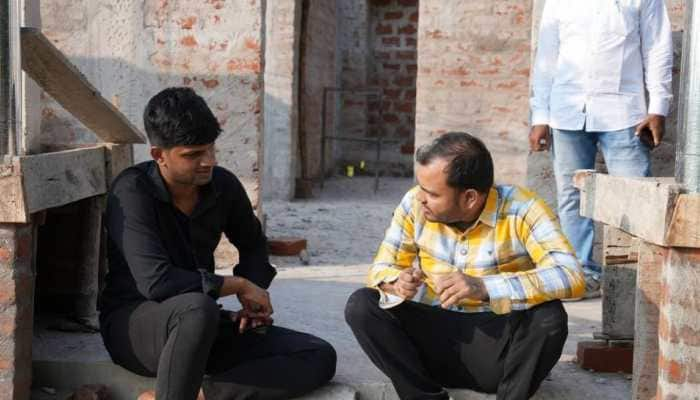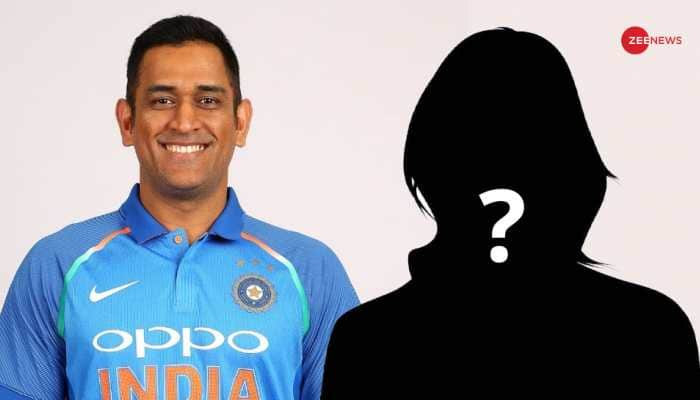Can monkeypox virus outbreak, which represents a global health emergency, be stopped? Here's what WHO thinks
This year, there have been more than 16,000 confirmed cases of monkeypox in more than 75 countries, and the WHO believes that the real number is probably higher.
Trending Photos
) REPRESENTATIONAL IMAGE (CREDITS: IANS)
REPRESENTATIONAL IMAGE (CREDITS: IANS) GENEVA: The rapidly spreading monkeypox outbreak can be stopped, an official from the World Health Organization (WHO) said on Tuesday (July 26, 2022). "We do at this moment still believe that this outbreak of monkeypox can be stopped with the right strategies in the right groups but time is going by and we all need to pull together to make that happen," Rosamund Lewis, WHO Technical Lead on Monkeypox, told reporters.
The outbreak represents a global health emergency, the WHO`s highest level of alert, WHO Director-General Tedros Adhanom Ghebreyesus said on Saturday.
The WHO label - a "public health emergency of international concern" - is designed to trigger a coordinated international response and could unlock funding to collaborate on sharing vaccines and treatments.
With the tools we have right now, we can stop #monkeypox transmission and bring this outbreak under control. It’s essential that all countries work closely with affected communities to adopt measures that protect their health, human rights and dignity.pic.twitter.com/DqyvRtB8w2 — Tedros Adhanom Ghebreyesus (@DrTedros) July 23, 2022
"WHO is still working towards determining a global coordination mechanism. At the moment, it`s something that`s still in discussion," Lewis said.
First identified in monkeys, the virus is transmitted chiefly through close contact with an infected person. Until this year, the viral disease has rarely spread outside Africa where it is endemic.
But reports of a handful of cases in Britain in early May signalled that the outbreak had moved into Europe.
This year, there have been more than 16,000 confirmed cases of monkeypox in more than 75 countries. Lewis said the real number was probably higher.
How worried should we be about monkeypox global health emergency?
The rapidly spreading monkeypox outbreak constitutes a global health emergency, WHO director-general Tedros Adhanom Ghebreyesus declared last week. First identified in monkeys, the virus is transmitted chiefly through close contact with an infected person. Until this year, the viral disease has rarely spread outside Africa where it is endemic.
But reports of a handful of cases in the United Kingdom in early May signalled that the outbreak had moved into Europe.
Cases have since ballooned to more than 16,000 from 75 countries. Five deaths, all of which occurred in Africa, have been reported so far.
How dangerous is monkeypox disease?
Monkeypox is a virus that typically causes mild symptoms including fever, aches, and pus-filled skin lesions. People tend to recover within two to four weeks, according to the WHO.
Anyone can spread the virus, but the current outbreak outside of Africa is concentrated almost exclusively among men who have sex with men.
Monkeypox spreads primarily via intimate skin-to-skin contact, usually with someone who has an active rash, as well as via contact with contaminated clothes or bedding. It is not as easily transmitted as the SARS-CoV-2 virus that spurred the COVID-19 pandemic.
"COVID is spread by the respiratory route and is highly infectious. This doesn`t appear to be the case with the monkeypox," said Dr. Martin Hirsch of Massachusetts General Hospital.
The risk of monkeypox is moderate globally, except in Europe, where the WHO has deemed the risk as high.
Why is monkeypox outbreak an emergency?
Health officials from several countries had urged the WHO to label monkeypox a public health emergency of international concern due to the quick escalation of cases and concerns it may become endemic in more countries.
The emergency declaration aims to spur global action and collaboration on everything from testing to the production and distribution of vaccines and treatments.
The fatality rate in preceding monkeypox outbreaks in Africa of the strain currently spreading has been around 1%, but so far this outbreak appears to be less lethal in the non-endemic countries, many of which have stronger healthcare infrastructure.
Scientists are trying to determine what caused the initial spate of cases and whether anything about the virus has changed. Increased global travel as well as climate change have generally accelerated the emergence and spread of viruses, experts say.
Infectious disease experts say that years of financial neglect have left sexual health clinics - who are on the frontline of the current monkeypox response - ill-prepared to curb the further spread.
How stay safe from monkeypox virus?
Health officials say that people should avoid close personal contact with someone who has an illness presenting with a distinctive rash or who is otherwise unwell. People who suspect they have monkeypox should isolate and seek medical care.
Health officials have also been offering monkeypox vaccines to high-risk individuals and those that have recently been in close contact with an infected person.
Danish company Bavarian Nordic An older vaccine, currently made by Emergent Biosolutions, is called ACAM2000, but its uptake has been limited due to a severe side-effect warning.
Bavarian Nordic says it can produce 30 million doses of its vaccines - including the monkeypox one - each year and has tapped a U.S.-based contract manufacturer to increase monkeypox vaccine capacity.
Is there a monkeypox treatment?
Monkeypox symptoms often resolve on their own within weeks. Patients may receive extra fluids and additional treatment for secondary bacterial infections.
An antiviral agent called tecovirimat - branded as TPOXX and made by SIGA Technologies - has U.S. and EU approval for smallpox, while its European approval also includes monkeypox and cowpox.
Stay informed on all the latest news, real-time breaking news updates, and follow all the important headlines in india news and world News on Zee News.
Live Tv







)
)
)
)
)
)
)
)
)
)
